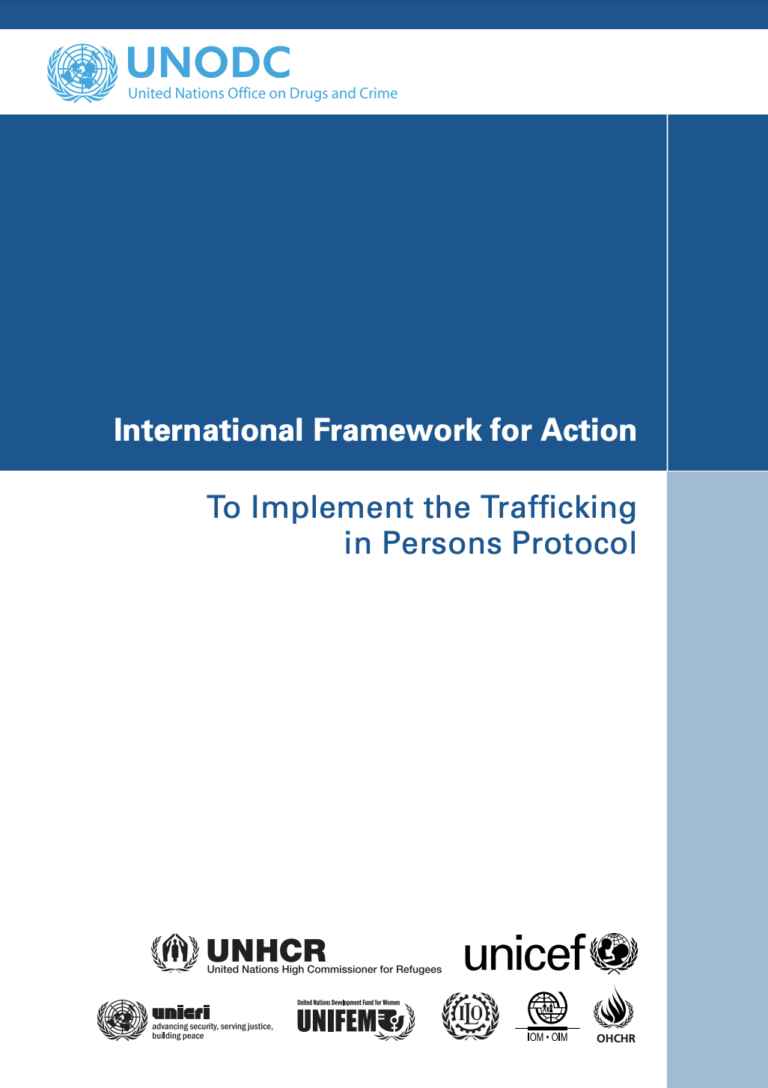The Framework for Action is a technical assistance tool that aims to assist United Nations Member States in the effective implementation of the United Nations Protocol to Prevent, Suppress and Punish Trafficking in Persons, Especially Women and Children (United Nations Trafficking Protocol). The Framework for Action consists of a narrative part and a set of tables. The narrative describes key challenges in the implementation of the United Nations Trafficking Protocol and proposes general measures that can be taken in order to more effectively address these challenges. The set of tables details these measures further, through five pillars containing practical actions to support the implementation of the United Nations Trafficking Protocol.

